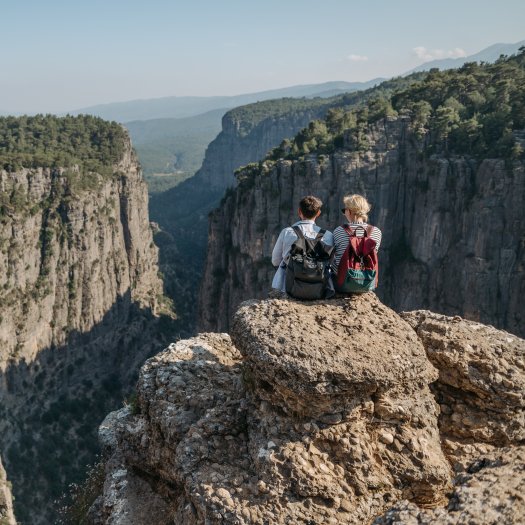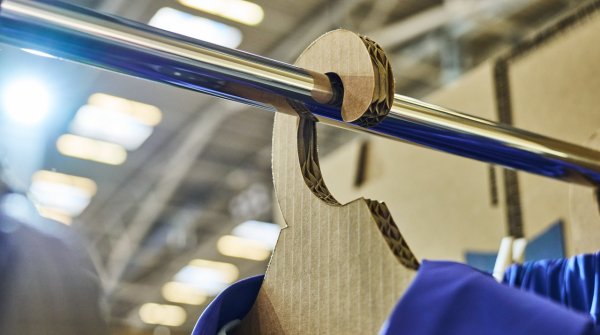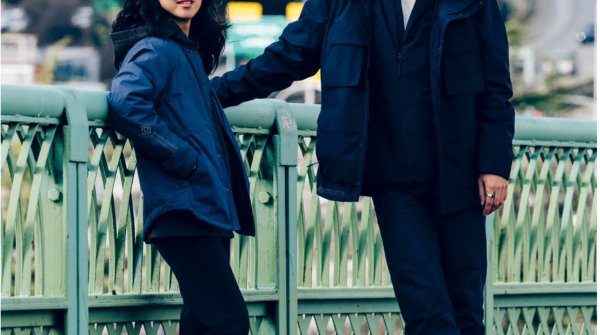"How about we join together as retailers to take targeted action to meet the Paris climate change targets? We're all going down the same path, we can learn from each other and check each other out," says Melanie Grünwald, Head of Sustainability at Yonderland, explaining the idea behind ORCC. She was involved from the beginning and immediately recognized the potential of ORCC. "Matthias Gebhard, the Managing Director of Bergfreunde, launched ORCC and brought Martin Stolzenberger, the Managing Director of Bergwelt, and me on board," Grünwald recalls in an interview with ISPO.com.
The open network is accessible to all outdoor retailers who agree to measure their carbon footprint, reduce their own carbon footprint in line with the Paris Climate Agreement and provide regular transparency on the measures taken. In 2021, Bergfreunde GmbH, Bergzeit GmbH, Sportler AG, Internetstores Holding GmbH and Yonderland (formerly A.S. Adventure Group) founded the ORCC. Six months later, retail giants such as Sport Schuster and Sport Conrad, among others, joined the network. Most recently, Bründl Sports joined as number eleven.
It is clear that additional members are welcome. Grünwald: "We are willing to share our own learnings, often saving new members time and resources and taking away their fear of tackling this issue. It impresses me that competitors here put profit, sales or growth aside and really put the environment first. I'm encouraged by that!"
Today, ORCC comprises around ten percent of the European outdoor trade. Even at the first annual review in November last year, it emerged that 90 percent of members measured their carbon footprint for Scope 1 and Scope 2, i.e. for their direct greenhouse gas emissions. 70 percent follow the Science Based Target Initiative (SBTI) methodology. Likewise, 70 percent measure their emissions in Scope 3, which captures greenhouse gas emissions that occur outside direct control - i.e., in the supply chain or at the consumer.
"Although all members of the ORCC are in close competition with each other, we are united by a deep desire to save our planet from climate catastrophe. Since this goal can only be achieved together, we have set up a structured roadmap to help us tackle this task together," says Matthias Gebhard.
Only one year after its founding, it has become clear that almost all ORCC members have done their homework and taken at least the first step towards more climate protection. Since the beginning of this year, the ORCC has been integrated into the European Outdoor Group "This is our platform, it takes over the administrative activities and, as a neutral organization, guarantees that we do not violate European antitrust law," Grünwald explains.
In addition to reducing self-generated emissions, the ORCC wants to exert more influence on the entire value chain. Currently, ORCC members are prioritizing the creation of a unified supplier database. This database is the most important next step for the ORCC.
The Outdoor Retailer Climate Commitment will host an ORCC roundtable at OutDoor by ISPO on June 5 at 12:40 p.m.. There Martin Stolzenberger and Melanie Grünwald underline the concerns of the network.
In addition, electricity is to be generated in-house wherever possible and processes in the companies are to be made more environmentally friendly overall. However, this only reduces the retailers' direct emissions. "The lion's share of emissions is in the production of raw materials and in the manufacture of the outdoor articles themselves. We need a vertically integrated solution to share data on the emission's footprint of our products with all members. To do this, we need the cooperation of our suppliers," says Melanie Grünwald. "We need to start demanding this data directly from our suppliers. That's the only way we can accelerate decarbonization."
One of the most important projects for 2023: to demand climate targets and emissions footprints from the biggest brands in the outdoor market. Grünwald: "For those who have not yet set any climate targets, we are telling them that it is high time they did so. Because without our brands, which account for the main share of emissions, we don't achieve enough as a retailer - even with the best reduction measures."
- ISPO awards
- Mountain sports
- Bike
- Design
- Retail
- Fitness
- Health
- ISPO Job Market
- ISPO Munich
- ISPO Shanghai
- Running
- Brands
- Sustainability
- Olympia
- OutDoor
- Promotion
- Sports Business
- ISPO Textrends
- Triathlon
- Water sports
- Winter sports
- eSports
- SportsTech
- OutDoor by ISPO
- Heroes
- Transformation
- Sport Fashion
- Urban Culture
- Challenges of a CEO
- Trade fairs
- Sports
- Find the Balance
- Product reviews
- Newsletter Exclusive Area
- Magazine







